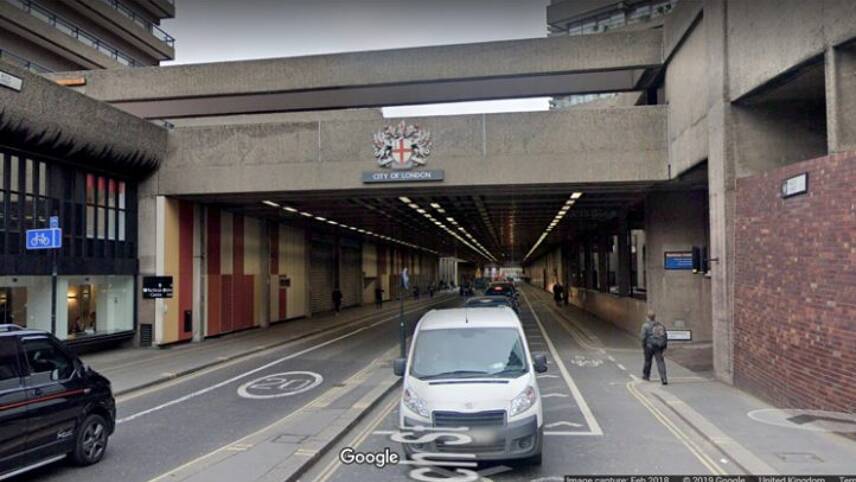Register for free and continue reading
Join our growing army of changemakers and get unlimited access to our premium content

The street currently has high levels of particulate pollution
The move will see Beech Street, which runs underneath the Barbican Estate in the City, be restricted to zero-emission vehicles, cyclists and pedestrians from Spring 2020- should the scheme be approved by Transport for London.
There will be several exceptions to the rule, including emergency vehicles; access to car parks off Beech Street; refuse collections and deliveries. A bus route than runs through the street – the 153 – will be unaffected as it is already fully-electric.
The scheme will run for 18 months while its impact on air quality and traffic will be monitored. Beech Street currently experiences high levels of air pollution as an enclosed thoroughfare. The hope is that these fresh restrictions will improve health for pedestrians and cyclists in the area, bringing NOx emissions in line with air quality guidelines set out by the EU and World Health Organisation (WHO).
The Corporation also hopes to improve air quality in the vicinity of the street, particularly around the entrances to Richard Cloudesley School and Prior Weston Primary School. If successful, the trial may be made permanent and will consider scaling up the project to other areas. Plans are also in place to make the Square Mile a zero-emissions zone by 2022 and cut the speed limit to 15mph.
Previous projects
The City of London Corporation has already taken action against air pollution for years, including the introduction of a low emission street in 2018. The Corporation limited road access to the south section of Moor Lane, near Moorgate, during a three-month trial which saw the banning of diesel vehicles not meeting Euro 6 standards and petrol vehicles that did not meet Euro 4.
Also in 2018, the Corporation launched what it claimed was the first air pollution parking tariff, offering discounted parking rates for electric vehicle (EV) and hybrid drivers in a bid to incentivise sustainable travel. The scheme applied to on-street parking within the Square Mile commercial and financial district with petrol and diesel vehicles charged £1.20 more per hour than those who park EVs.
In 2016, it announced a ban on the purchase of diesel vehicles from its more than 300 vehicle-strong business fleets, due them being a major source of nitrogen dioxide (NOx) emissions and particulate matter (PM10).
Speaking about the zero-emission street project, the City of London Corporation’s planning and transportation sub-committee chair Oliver Sells QC said: “This is a groundbreaking scheme. It will bring substantial health benefits to those who live and work in the Barbican area, and will also help reduce noise pollution.
“The experimental scheme will be enforced using the latest in smart camera technology and I hope it will be the first of many other schemes like this.”
The City of London Corporation’s environment committee chair Jeremy Simons said of the scheme: “Drastically reducing air pollution requires radical actions, and these plans will help us eliminate toxic air on our streets.”
James Evison


Please login or Register to leave a comment.